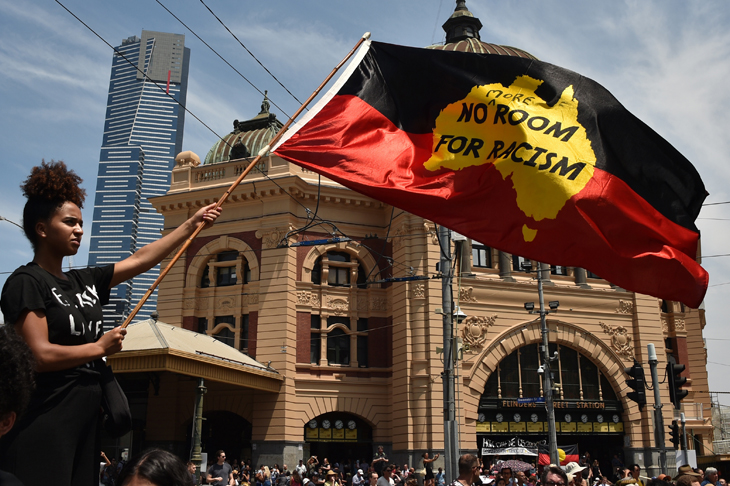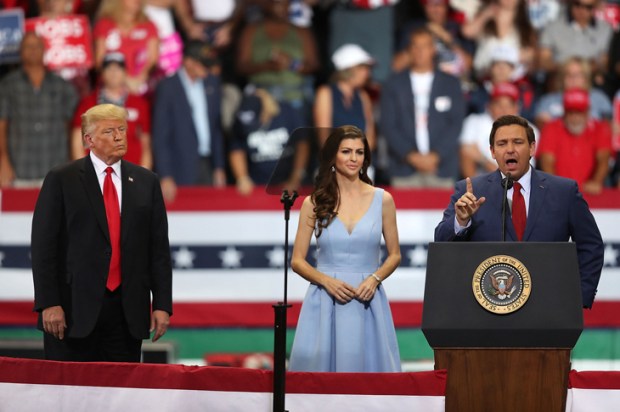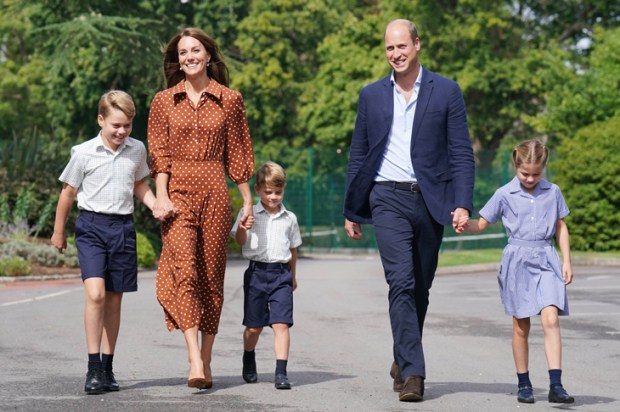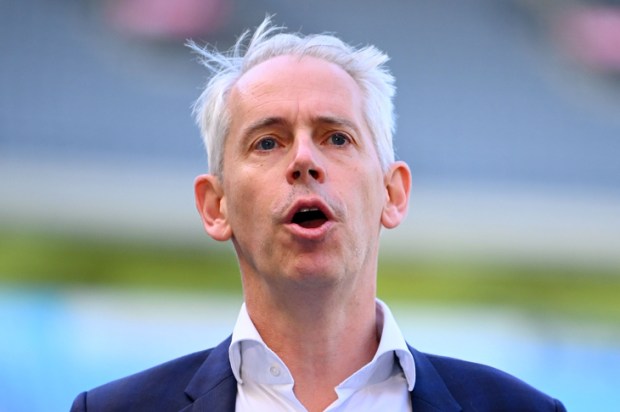Constitutional ‘recognition’ of the indigenous people is but the latest in a series of silver bullets proposed by the elites to solve the very problem they created.
Apart from one hundred more politicians, (with staff, offices, travel, superannuation, etc.) this will have the very same result the other silver bullets have all had.
It will be another distraction from ‘closing the gap’ and stopping what John Howard tried to end, the unacceptable scandal of violence to and of sexual abuse of women and children and of the utter hopelessness in some remote communities which has now extended into regional towns. And this notwithstanding the poorly accounted massive allocation of around $30 billion to Aboriginal affairs and the rivers of gold which flow from native title.
The biggest mistake made after the 1967 referendum was to reverse the highly successful assimilation policy administered for two decades by the well-respected Sir Paul Hasluck. In its place came segregation and separate development, at least in remote Australia, with declarations of indigenous identity increasingly incentivised.
But assimilation was and is strongly supported by most Australians as evidenced in the 1967 referendum. And it’s also strongly supported by the indigenous people themselves. So much so that on the indicator of success for such a policy developed by the distinguished French authority, Emmanuel Todd, the rate of endogamy or marrying out (especially female), assimilation remains an astounding achievement. Well over 80 per cent of both men and women in the capital cities in fact marry out. No doubt reflecting incentivisation, an overwhelming number of children of these marriages regard themselves as indigenous.
As to the 1967 referendum, which despite reports to the contrary was not about already-granted citizenship and voting rights, Sir Robert Menzies argued this best be restricted to repealing Section 127. Again, despite reports to the contrary, this had absolutely nothing to do with the Census. It was no more than a pragmatic answer to the impossibility of counting nomadic people in determining the number of parliamentary seats to be allocated to each state. Menzies was against the transfer of funding and legislative powers to Canberra, warning presciently that this would only create a bureaucratic monstrosity. Anything the Commonwealth wanted to achieve, he rightly said, could be done indirectly through conditional grants to the states. The Holt government unfortunately ignored this wisdom.
The latest silver bullet, constitutional ‘recognition’, is one of those terms, such as ‘multicultural’, ‘republic’ or ‘reform’, where the Humpty Dumpty principle applies —’When I use a word, it means just what I choose it to mean — neither more nor less.’
So what is the meaning of constitutional recognition? Like France’s republics prior to 1958, there have been four so far. The first was to be a reference in the Preamble to the Constitution Act, 1900.The second was included in a proposal for a preamble to the Constitution (this is actually section 9 of that Act). But this was overwhelmingly rejected in the 1999 referendum.
The third was by an Expert Panel who in 2012 produced an impossibly-complicated, internally-contradictory and to most, incomprehensible proposal for the repeal of two provisions in the Constitution (one actually the centrepiece of the 1967 referendum) along with the insertion of three new ones. It was greeted with as much euphoria by the usual suspects, the corporate moral guardians, as they are now offering to the latest fourth version.
While the third version was still under consideration, the then PM, Tony Abbott, was invited by Australians for Constitutional Monarchy to deliver the 2014 Annual Neville Bonner Oration. His theme, without notice, was to invite ACM as ‘the constitution’s fiercest defenders’ to support some undefined but no doubt minimal form of constitutional recognition as ‘a grace note’ in the Constitution, ‘this most serviceable of foundation documents’. Moving the vote of thanks, I suggested that, as with Federation, this should be best considered at a popularlyelected convention.
So we spelt this out in a detailed submission to the parliamentary inquiry. We argued that the only way any such referendum proposal should emerge was not to leave it to experts or limited groups but by following the successful way our predecessors formed this nation after the politicians failed to do it — by the people. With more than a century of federation and serious concerns about the governance of the nation, it was surely time to look at this along with other relevant constitutional issues. (We suggested excluding ‘the’ republic which has been well and truly ‘done and dusted’ to exhaustion.)
Recalling the great success of the 1893 Corowa Plan in achieving Federation, we proposed it be agreed that after wide consultations the final convention recommendations be put direct to the people.
The only significant opposition at the hearing was an objection by one MP to our preference that convention delegates be unpaid.
In its report the parliamentary committee did recommend holding constitution conventions.
But this was to be only on constitutional recognition and then, only with indigenous delegates. With the views of 97 per cent of the people thus ignored, this is the last way anyone should approach constitutional revision.
Were the people to approve the change, or, more likely, the politicians to impose it by legislation, the inhabitants of what has been called ‘the third chamber’ will be as likely to act on the disaster that segregation has been as are most of the political elite and the commentariat.
There would be mutual congratulations and then business as usual. The chamber will be captured by the usual elites mainly on the Left and every current issue will be dragged before them to express their opinion.
The ABC’s The World Today would do what would seem impossible, have even more indigenous news. The mainstream media would follow. The abuse of women and children will continue at extraordinary levels unabated and ignored.
Rather than putting a referendum or legislating to impose the ‘Voice’, this should be considered at an elected convention along with other issues of serious concern to rank-and-file Australians.
Got something to add? Join the discussion and comment below.
Get 10 issues for just $10
Subscribe to The Spectator Australia today for the next 10 magazine issues, plus full online access, for just $10.
You might disagree with half of it, but you’ll enjoy reading all of it. Try your first month for free, then just $2 a week for the remainder of your first year.














Comments
Don't miss out
Join the conversation with other Spectator Australia readers. Subscribe to leave a comment.
SUBSCRIBEAlready a subscriber? Log in